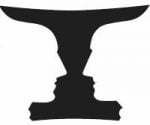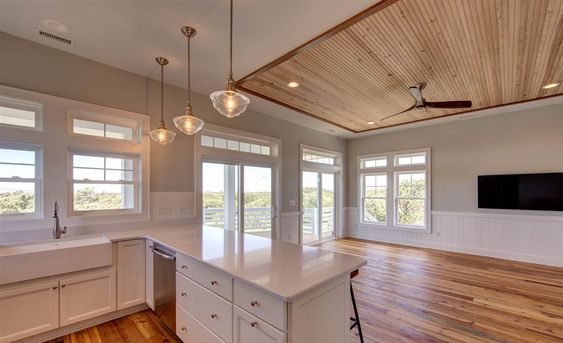Life is dialectical, that is why it is not logical. Logic means that the opposite is really opposite, and life always implies the opposite in itself. In life the opposite is not really the opposite, it is the complementary. Without it nothing is possible.
For example, life exists because of death. If there is no death, there cannot be any life.
Death is not the end and death is not the enemy — rather, on the contrary, because of death life becomes possible. So death is not somewhere in the end, it is involved here and now. Each moment has its life and its death; otherwise existence is impossible.
There is light, there is darkness. For logic they are opposites, and logic will say: If it is light, there cannot be any darkness, if it is dark, then there cannot be any light. But life says quite the contrary. Life says: If there is darkness it is because of light; if there is light it is because of darkness. We may not be able to see the other when it is hidden just around the corner.
There is silence because of sound. If there is no sound at all, can you be silent? How can you be silent? The opposite is needed as a background. Those who follow logic always go wrong because their life becomes lopsided. They think of light, then they start denying darkness; they think of life, then they start fighting death.
That is why there exists no tradition in the world which says that God is both light and darkness. There is one tradition which says that God is light, he is not darkness. There is no darkness in God for the people who believe God is light. There is another tradition that says that God is darkness — but for them there is no light. Both are wrong, because both are logical, they deny the opposite. And life is so vast, it carries the opposite in itself. It is not denied, it is embraced.
Once somebody said to Walt Whitman, one of the greatest poets ever born, “Whitman, you go on contradicting yourself. One day you say one thing, another day you say just the opposite.”
Walt Whitman laughed and said, “I am vast. I contain all the contradictions.”
Only small minds are consistent, and the narrower the mind, the more consistent. When the mind is vast, everything is involved: light is there, darkness is there, God is there and the devil too, in his total glory.
If you understand this mysterious process of life which moves through the opposites, which is dialectical, where the opposite helps, gives balance, gives tone, makes the background, then only can you understand Chuang Tzu — because the whole Taoist vision is based on the complementariness of the opposites.
They use two words, yin and yang. They are opposites, male and female. Just think of a world which is totally male or a world which is totally female. It will be dead. The moment it is born it will be dead. There cannot be any life in it. If it is a female world — women, women and women, and no men — women will commit suicide. The opposite is needed because the opposite is attractive. The opposite becomes the magnet, it pulls you; the opposite brings you out of yourself, the opposite breaks your prison, the opposite makes you vast. Whenever the opposite is denied there will be trouble. And that is what we have been doing, hence so much trouble in the world.
A room is space, not walls. Of course, space is free but walls have to be purchased. When you purchase a house, what do you purchase? The walls, the material, the visible. But can you live in the material? Can you live in the walls? You have to live in the room, in the vacant space. You purchase the boat, but you have to live in the emptiness.
So really, what is a house? Emptiness surrounded by walls. And what is a door? There is nothing. ‘Door’ means there is nothing, no wall, emptiness. But you cannot enter the house if there is no door; if there is no window then no sun will enter, no breeze will blow. You will be dead, and your house will become a tomb.
You live in the emptiness, not in the walls. The hollowness– that is the real house. But when you
think about the house you think about the structure that is around the hollowness. That’s why a
palace and a hut look different to you. Not for Lao Tzu – because the hollowness is the same. If
you look at the walls then of course a hut is a hut and a palace is a palace. But if you look at the
innermost hollowness, which is the real house – because only hollowness can house you, not the
walls – then there is no difference between a hut and palace. There is no rich hollowness and no
poor hollowness: all hollownesses are the same, they are equal. But there are rich walls and poor
walls.
Once you understand this, then many things will become possible because this is an analogy with infinite potentiality and meaning. When you look at a person do you look at the body? Then you are looking at the walls. That is not the real man– the real man is the inner hollowness. A body can be beautiful, ugly, ill, healthy, young, old, but the inner hollowness is always the same. Then you don’t look at the bodies, then you look at the hollowness within.
Chuang Tzu says: Remember that the house consists of two things: the walls, the material — the marketable, the utilitarian — and the emptiness surrounded by the walls, the non-utilitarian which cannot be purchased, which cannot be sold, which has no economic value.
How can you sell emptiness? But you have to live in the emptiness — if a man lives only in the walls he will go mad. It is impossible to do that — but we try to do the impossible.
In life, we have chosen the utilitarian.
For example, if a child is playing you say, “Stop! What are you doing? This is useless. Do something useful. Learn, read, at least do your homework, something useful. Don’t wander around, don’t be a vagabond.” And if you go on insisting on this to a child, by and by you will kill the useless. Then the child will become just useful, and when a person is simply useful, he is dead. You can use him, he is a mechanical thing now, a means, not an end unto himself.
You are really yourself when you are doing something useless — painting, not to sell, just enjoying; gardening, just to enjoy; lying down on the beach, not doing anything, just to enjoy, useless, fun; sitting silently at the side of a friend.
Much could be done in these moments. You could go to the shop, to the market, you could earn something. You could change time into money. You could get a bigger bank balance because these moments will not come back. And foolish people say that time is money. They know only one use for time: how to convert it into more money and more money and more money. In the end you die with a big bank balance but inside totally poor, because the inner richness arises only when you can enjoy the useless.
What is meditation? People come to me and say, “What is the use of it? What will we gain out of it? What is the benefit of it?”
Meditation…and you ask about the benefit? You cannot understand it because meditation is just useless. The moment I say useless, you feel uncomfortable because the whole mind has become so utilitarian, so commodity-oriented that you ask for a result. You cannot concede that something can be a pleasure unto itself.
Useless means you enjoy it, but there is no benefit from it; you are deeply merged in it and it gives you bliss. But when you are deeply in it, you cannot accumulate that bliss, you cannot make a treasure out of it.
In the world two types of people have existed: the utilitarians — they become scientists, engineers, doctors; and the other branch, the complementary — poets, the vagabonds, the sannyasins — useless, not doing anything useful. But they give the balance, they give grace to the world. Think of a world full of scientists and not a single poet — it would be absolutely ugly, not worth living in. Think of a world with everyone in the shops, in the offices, not a single vagabond. It would be hell. The vagabond gives beauty.
These people give beauty to the world, they are a perfume. A Buddha is a vagabond, a Mahavira is a vagabond. This man, this vagabond, answered that the sky was his only shelter. That is what is meant by the word DIGAMBER. Mahavira, the last TIRTHANKARA of the Jainas, is known as digamber. Digamber means naked, only the sky for clothing, nothing else. The sky is the shelter, the home.
Whenever the world becomes too utilitarian you create many things, you possess many things, you become obsessed with things — but the inner is lost, because the inner can flower only when there are no outer tensions, when you are not going anywhere, just resting. Then the inner flowers.
Osho: The Empty Boat Chapter #8 Chapter title: The Useless (Excerpts)
Osho: Tao: The Three Treasures, Vol 1: CHAPTER 3. ON THE CHARACTER OF TAO (Excerpts)
घरों पे नाम थे नामों के साथ ओहदे थे
बहुत तलाश किया कोई आदमी न मिला…………. बशीर बद्र
gharoñ pe naam the nāmoñ ke saath ohde the
bahut talāsh kiyā koī aadmī na milā ……………BASHIR BADR
There were names on the doors with designations
I searched a lot but failed to find a human being.
There is an exact and unique combination of a scientist and a vagabond, a mystic, singing this soul stirring song together in “Swades”, beautifully written by Javed Akhtar and composed by A.R. Rahman depicting the complementariness of the opposites — “The Whole”.
(478) Yun Hi Chala Chal Lyrical Video | Swades | A.R. Rahman | Shahrukh Khan – YouTube


Excellent
Just love this post. Never ever would I have recognised the value of the hollowness that is between the walls where we live in. A house to most of us has always been the walls and the material structure. And so is true with how we see human beings.
Thanks for introducing the concept of ‘hollowness’. That is the real freedom, the real being, the real existence. A beautiful post
Thanks once again for this wisdom!!
– nish
Too good 😊
Thrilled with the concept of Uselessness and how one experiences true happiness.
would like to remember this statement.
“the inner richness arises only when you can enjoy the useless”.
Thanks for insight.
Happy writing.
Thank you so much for sharing yhis